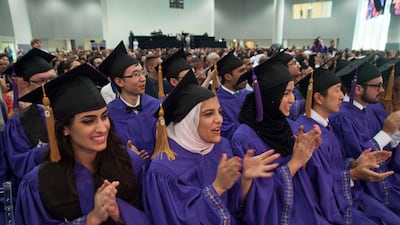“Do not judge me by my success. Judge me by how many times I fell down and got back up again.” Those are the wise words of Nelson Mandela, former South African president and luminary, whose legacy is celebrated to this day.
Mandela’s words are universally relevant in a world that has collectively experienced sizeable losses due to the Covid-19 outbreak, but also came together in many ways to adjust and respond to the changes.
Given the severity of the setbacks that have affected the various systems serving our society, it is important to understand that recovery will be an ongoing process. But we must remain committed to progress and not lose sight of our long-term goals.
The GCC has fared well in terms of pandemic response and is on the way to recovery. The International Monetary Fund (IMF) has forecasted that the region will return to a fiscal balance by 2023, for the first time since 2014.
While this is promising, we need to remind ourselves of the journey that has led us to this juncture, learn from the challenges we have faced and strategically plan for the future.
Countries of the GCC have come a long way in the past few decades. For example, Oman has gone from being an underdeveloped country to a fast-developing one, and taken the lead in foreign affairs, promoting peace, harmony and friendship among countries.
The region has evolved from a relatively unknown territory to a gateway between East and West, a prominent host of international events and a driver of progress in myriad areas – from tourism to real estate and technology.
In addition to investments from our governments and the private sector, I attribute this headway to Arab youth. Our young people have persevered and made great strides in higher education, business and science, and used their abilities for the benefit of society.
Not too long ago, our region was almost completely reliant on oil. However, I have always felt that our youth is our greatest asset and the key to a stable and prosperous future.
While much has been done in the way of diversification, the next natural step towards a brighter tomorrow involves closer engagement with youth, including the launch of a set of programmes that harness young talent and empower the young generation to lead our region throughout the coming decades.
A continued focus on private sector growth is also essential. Therefore, I call on all financial institutions in the region to commit to supporting young entrepreneurs. Small and medium-sized enterprises (SMEs) are the backbone of any economy and have been significantly affected by the pandemic.
SMEs have had access to finances and workshops in the region. However, we must re-examine their needs in the current fast-evolving environment. Organisations that have the means to support SMEs can interact more closely with entrepreneurs and industry professionals to tailor financing and mentorship programs to their requirements, and allow them to set up and expand their businesses as seamlessly as possible.

While education in the region, particularly higher education, has grown over the past decades, we must also explore alternatives to formal education.
The world around us is getting increasingly integrated, and given the fast pace at which technology is evolving and affecting people's lives and and the functioning of organisations, we need to adopt a holistic view towards economic development and work to prepare our young generation for the future.
Continuing education programmes, offered by various institutions, are an excellent option for youth looking to gain skills and knowledge but requiring flexibility due to ongoing work and family commitments.
These programmes can enable aspiring and mid-level professionals to broaden their perspectives and look beyond the perceived limits of their professions, inspiring creativity and flexibility. They are also an ideal choice for women who have stepped away from the workplace to care for their families, especially with the wide variety of online courses that offer easier accessibility, rather than courses that require physical attendance.
Furthermore, continuing education programmes are an excellent option for employers looking to keep their employees engaged and up to date with global trends within their fields, or equip them with knowledge in areas that will support their roles.
The fallout from the pandemic cannot be discounted. But we need to keep our eye on the prize. Global shifts in these past two years have reminded people around the world how important it is for society to function in harmony, an idea that has been a part of Arab tradition and one of our region’s greatest strengths.
Education has always been a key driver of growth. We have talented and highly engaged youth. But we must consider the pace at which the world is changing and support lifelong learning in order to prepare for the future and leverage our strengths to seize the opportunities that may arise.


